
One after another, the mothers sat their babies in the shade, on a mat placed on the dusty ground. This morning at least, their children will have enough to eat.
In the village of Ifotaka, at the southern tip of Madagascar, the noise and excitement of the country's election campaign seems far away as locals confront more pressing needs in a daily struggle for food.
For Pastrolina Vatofara, aid agency food distribution is a matter of survival.
"I earn a little money by harvesting sisal trees (to make rope) but that's not enough to feed my three little ones," said the 28-year-old mother. "With the drought, they would not survive without help... The government has forgotten us."
But even on an empty stomach, Vatofara will vote Wednesday for the second round of the presidential election.
"I hope the next president will help us a little more," she said.
For several seasons now, the entire southern part of Madagascar has been caught up in a drought that has made water increasingly scarce, wrecking even efforts to grow rice -- the staple food.
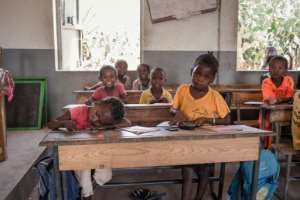 Children are the worst hit, with almost half of those under five chronically malnourished. In areas affected by drought, up to 12 percent suffer from severe malnutrition. By RIJASOLO (AFP)
Children are the worst hit, with almost half of those under five chronically malnourished. In areas affected by drought, up to 12 percent suffer from severe malnutrition. By RIJASOLO (AFP) "Today, 1.2 million people are food insecure," said Maman Bashir Yacouba, head of the World Food Programme (WFP) in Madagascar.
"In most of these areas, the whole economy is based on agriculture and livestock, and it has been at least four years now that there has not been good rainfall -- the situation has become worrying".
Children are the worst hit, with almost half of those under five chronically malnourished. In areas affected by drought, up to 12 percent suffer from severe malnutrition.
Desperate shortages
In the Amboasary region, the WFP, UNICEF and other action groups are trying to distribute rations and dietary supplements to protect the youngest children for as long as possible.
But the task is enormous and their resources are inadequate.
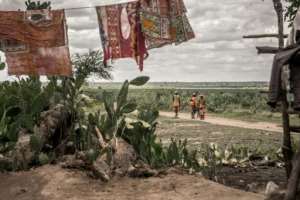 The south suffers a glaring absence of infrastructure. Hospitals lack staff, equipment, medicine and reliable electricity, while deplorable roads are often impassable. By RIJASOLO (AFP)
The south suffers a glaring absence of infrastructure. Hospitals lack staff, equipment, medicine and reliable electricity, while deplorable roads are often impassable. By RIJASOLO (AFP) WFP has said it had to drastically reduce its current project due to a $50 million shortfall in its budget.
"Madagascar is a country forgotten by international aid," said one humanitarian worker who declined to be named.
"Every year, we only react to the emergency crisis. We know that we could tackle the problem by improving water supplies, but it is much too expensive".
So the population is forced to rely on occasional help, when it arrives, and on whatever else they can find.
"Because of the lack of rain, we do not always eat," said Maherimana, a 67-year-old elder from Ifotaka.
"Some days, I have to settle for a little cassava (root vegetable), that's all.
WFP local coordinator Mamy Razafindrakoto said the region faced a grim time until at least the next harvest in April.
"Here people work, they are not lazy, they make progress when they have some water -- the problem is that there is none," he said.
"They drink the water from the same puddles as the cattle, they wash there. The lack of hygiene causes a lot of damage."
An absent government
And as if natural calamities were not enough, the south suffers a glaring absence of infrastructure.
Hospitals lack staff, equipment, medicine and reliable electricity, while roads are often impassable.
"I have trouble seeing any presence of the state here," said Fatou Sall, local coordinator of Action Against Hunger.
"Just having good roads would be a huge change. When you cannot move, you wait and pray, that's all that is left to do."
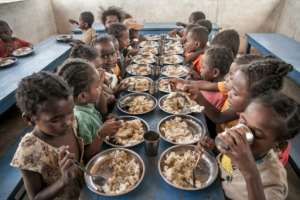 Some residents hold out hope the second-round election, which pitches two former presidents -- Marc Ravalomanana and Andry Rajoelina -- will bring some change for the poor south of Madagascar. By RIJASOLO (AFP)
Some residents hold out hope the second-round election, which pitches two former presidents -- Marc Ravalomanana and Andry Rajoelina -- will bring some change for the poor south of Madagascar. By RIJASOLO (AFP) His colleague Annick Rakotoanosy, a Madagascan, holds out some hope for the second-round election, which pitches two former presidents -- Marc Ravalomanana and Andry Rajoelina -- against each other in a personality-driven race for power.
"What could change things is a political will to help the south," she said.
"We know that the government cannot stop the drought, but drilling or water supply works, that it could. If there is a will, then we can move forward."
Of the 36 candidates in the first round, only two, Rajoelina and outgoing president Hery Rajaonarimampianina, made brief appearances in the region.
Rajoelina, who won most of the local vote last month, returned briefly to pose with his helicopter last week to vow that he would not forget his supporters.
Ravalomanana has also pledged to "help poor farmers".
Despite everything, Joseph Rafaralahy, the 77-year-old head of Ifotaka village, does not want to despair over politics.
"We need help with water, for example using motor pumps," he said. "But I cannot pay and the state has not done it yet. Maybe the next president, who knows?"
Read Full Story

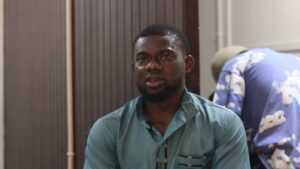








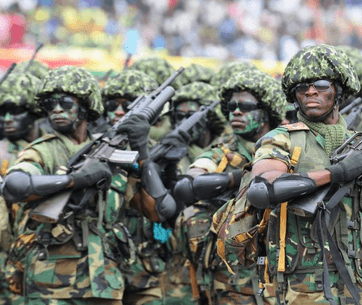
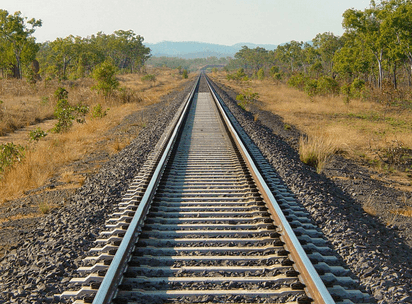

Facebook
Twitter
Pinterest
Instagram
Google+
YouTube
LinkedIn
RSS